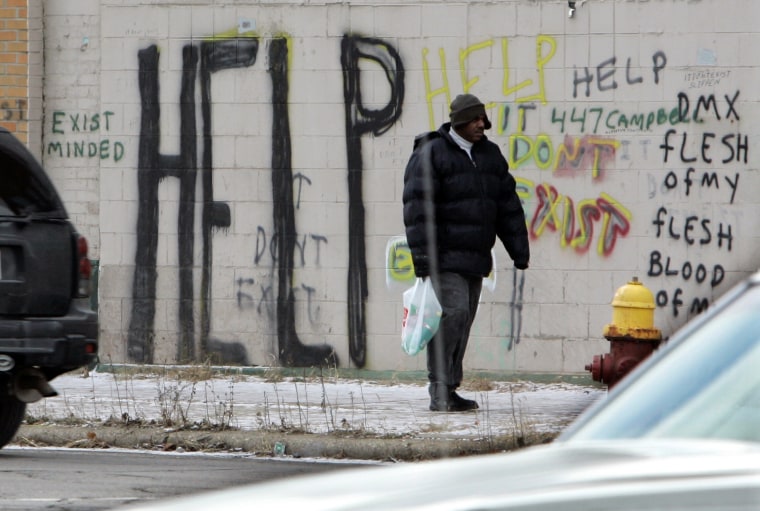There have been so many over-hyped, "big" stories lately that it's hard to appreciate when a truly big story comes along.
But Detroit's decision to file for bankruptcy protection is one of the most important stories in America right now.
Detroit's debt is 18 billion dollars!
If you just parceled out that debt to the entire population, it would be $100,000 of debt for every family of four in America. While Detroit suffered for years under mismanagement and corruption, often under Democratic officials, today Detroit is fast becoming the most libertarian city in the United States.
In many areas, there are basically no public services besides decaying roads and bombed out infrastructure.
When 40% of the street lights don't work at night, that leaves a troubled city shrouded in darkness, where even police and emergency services have literally become optional.
Across the country a call to the police brings a response in about eleven minutes.
In Detroit, the average is 58 minutes--and many times it takes much longer, if the police come at all.
So if you know all that, you know that cutting current public services will not cover Detroit's debts. New taxes won't either.
The bankruptcy law will enable Detroit to renegotiate with creditors--kind of the way that a corporation or citizen can do under Chapter Eleven although some of the rules are different under the municipal structure in Chapter Nine.
So what is Detroit to do for its workers and the city's sworn debt to pension holders?
My message is to look at Washington. That's right, like Republicans did in the eighties for Chrysler and Continental. Or like Democrats did in the nineties for the investment firm Long-Term Capital Management. Or like Republicans and Democrats did in the financial crisis for Bear Stearns and Wells Fargo and Bank of America and JP Morgan Chase and Citigroup and Morgan Stanley and Goldman Sachs and Bank of New York Mellon and 734 other banks in the 2008 bailout.
As Wall Street financier and auto industry expert Steven Rattner wrote in The New York Times, the "residents of the Motor City are no more responsible for Detroit's problems than were the victims of Hurricane Sandy for theirs."
Congress should convene a special session to address Detroit's emergency. It can send emergency aid now, as the city prepares to operate without a solvent government. It can target jobs programs in the city--jobs are supposedly a priority of both parties.
And it can also explore less expensive and less liberal solutions like investing in local property that can be sold later or starting a Detroit branch of the Smithsonian. That is one logical way to avert a cultural disaster, since there is talk that bankruptcy could force the city to auction off a billion dollars worth of art, collected over 128 years at the Detroit Institute of Art. The federal government could partner up with the institute to buy that cultural heritage and keep it accessible to citizens in Detroit and around the nation.
My point is, our fellow citizens are hurting and there are a lot of things Congress can do.
If the largest local bankruptcy in our history isn't the right time for spending on emergency aid and jobs, when is the right time?
